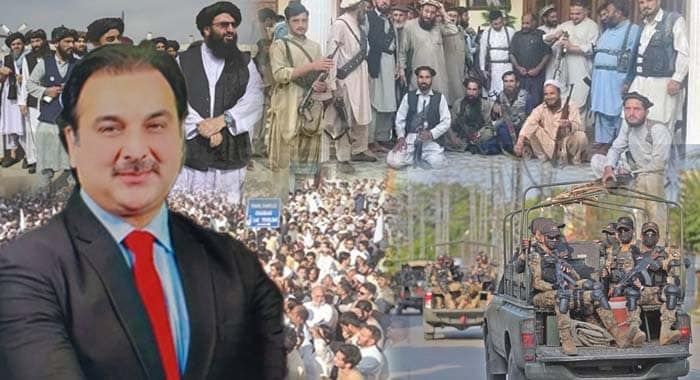The recent attack on a police checkpost in Upper Dir, where several policemen embraced martyrdom, is yet another grim reminder of how militancy continues to threaten Pakistan’s hard-earned peace. But what sets this moment apart from earlier waves of terror is the strong and visible resistance of the people themselves. For the first time, communities in Dir, Bajaur, and Khyber are not only standing behind their police and security forces, but actively confronting militants, demanding that they vacate their villages and go back across the border.
This grassroots awakening is significant. For years, certain narratives sought to delegitimize the state by suggesting that terrorism was somehow orchestrated by “the uniform.” But the daily sacrifices of police and soldiers, ten of whom fell in Khyber Pakhtunkhwa in just one day, shatter this propaganda. If the state were behind terrorism, why would its frontline forces bear the brunt of the violence? People are beginning to see through the disinformation, and their defiance in jirgas and village gatherings is proof that public trust in the state and its security institutions remains intact.
In Dir, Bajaur, and Khyber, jirgas have directly confronted militants, warning them to leave or face consequences. In one instance, even the militants admitted, via calls from across the Afghan border, that they would comply with the people’s demand, though asking for more time. Elsewhere, when dialogue failed, the people stood beside security forces, and together they pushed the terrorists out. This is unprecedented: ordinary citizens armed with little more than conviction, refusing to surrender their peace to extremists.
Yet, as encouraging as this resistance is, the threat itself is growing more complex. Russia’s recent report estimating more than 23,000 foreign fighters belonging to 20 different outfits inside Afghanistan underscores what Pakistan has long feared: that Afghan soil has once again become a hub for transnational militancy. Groups like Daesh-Khorasan have spread from just four provinces to thirty since the Taliban takeover in 2021. Alongside them are TTP factions, Al-Qaeda remnants, and regional outfits like the Turkestan Islamic Party; all with safe havens, training centers, and the ability to strike across borders.
A particularly troubling development is the TTP’s international recruitment. No longer confined to local recruits from Waziristan or Swat, the group has reportedly drawn fighters from as far afield as Azerbaijan and Bangladesh. Counterterrorism officials in Pakistan have already confirmed that a foreign bomber, linked to the TTP, was intercepted in Peshawar. This trend signals that militancy in the region is not just a local problem; it is globalized, interconnected, and increasingly dangerous.
The Doha Agreement of 2020 was explicit: Afghan soil must not be used against any neighbor. Yet, Pakistan continues to suffer cross-border attacks. The Taliban government either cannot or will not restrain these groups. Some argue they are too weak; others say they are complicit. Regardless, the outcome is the same: Pakistan bleeds. At the same time, foreign powers exploit Afghanistan’s instability for their own strategic games. Rival states, particularly India, see opportunity in using proxies to destabilize Pakistan, derail CPEC, and contain China’s rise. The Bisham attack on Chinese workers is one stark example of how these plots unfold.
The Afghan Taliban face a choice. If they truly desire regional stability and economic integration, such as joining CPEC, they must act against militants operating on their soil. If not, trade, investment, and cooperation will remain dreams deferred. Pakistan, meanwhile, has been clear: we do not support terrorism. We have sacrificed over 100,000 lives, more than any other nation, in fighting this menace. The world now acknowledges this. But sacrifices alone cannot be our only legacy; we need collective action.
Neighboring countries like Iran have already shown resolve by deporting undocumented Afghans after discovering how some were being exploited by foreign intelligence. Pakistan faces a similar dilemma: millions of undocumented migrants pose both a humanitarian and a security challenge. A state cannot be expected to turn a blind eye when the risks are so severe.
The way forward is not denial, nor blame games, but joint action. Regional states: Pakistan, China, Iran, Russia, and even Afghanistan itself, must recognize that militant sanctuaries threaten all. Western nations already consider Daesh-Khorasan a global danger. Unless we treat this as a collective security crisis, terrorism will once again consume South and Central Asia, undoing decades of progress.
The people of Dir, Bajaur, and Khyber have spoken clearly: they will no longer surrender to terror. It is now the duty of states; both Pakistan and Afghanistan, with support from the international community, to match this resolve with decisive action. Only then can the sacrifices of our martyrs pave the way for lasting peace.





